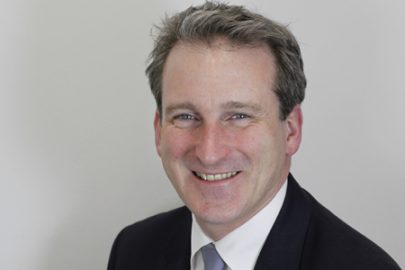Education Secretary Damian Hinds says primary school children will be taught about LGBTQ+ issues in a ‘respectful’ way
He said it was important to teach children about the modern world and different families
By Steve Brown

Education Secretary Damian Hinds said insisted schoolchildren as young as four will be taught about LGBTQ+ issues in a ‘respectful’ way.
As part of new curriculum guidelines announced by the UK Government, schools will introduce dedicated lessons about relationships, being safe on the internet, the dangers of sexting and mental health.
While speaking on Good Morning Britain on Monday (February 25), Hinds revealed that primary school pupils will be taught about “respectful relationship” but said the school’s will decide when they think it’s age appropriate to teach sex education.
He said: “We are saying that in primary school they should learn about respectful relationships. When you start not talk about different adult relationships, that has to be done in an appropriate way.
“It is not about saying this stuff all happens at the age of five. At a young age, what we are talking about is having respect for all kinds of people.
“You have to have respect for all the different families you come into contact with.
Over 100,000 parents have signed a petition objecting to a new sex education curriculum for primary school students.
These new lessons involve teaching kids about consent, social media safety and LGBT relationships.
How young is too young for kids to be taught these topics? pic.twitter.com/IGE1ahV4iV
— Good Morning Britain (@GMB) February 25, 2019
“Nobody is suggesting that there should be these difficult conversations with children at that age, but relationships in the broader sense, friendships, interactions and how you interact with other children and adults.
“That’s very important from a very young age.”
The new curriculum – which will include subjects on relationships education from primary school, relationships and sex education at secondary school and health education for all ages – will be introduced in England from 2020.
Hinds then reinforced his point while speaking to Sky News and said it is “important” to teach children about the modern world and knowing about different families.
He said: “We think it’s right that children grow up knowing about the modern world and knowing there is differences, some families will look different from their own.
“We think it’s right that teachers, the schools themselves, make the judgment on when is age appropriate for their particular cohort of children to cover some of those matters.”
Education Sec @DamianHinds announces curriculum shake-up which will see schoolchildren as young as four learning about same-sex relationships and transgender issues.
Trolling, sexting, and mental health will also be on the agenda: https://t.co/6VWiltLlWN pic.twitter.com/X3ZNBzaTEz
— Sky News (@SkyNews) February 25, 2019
